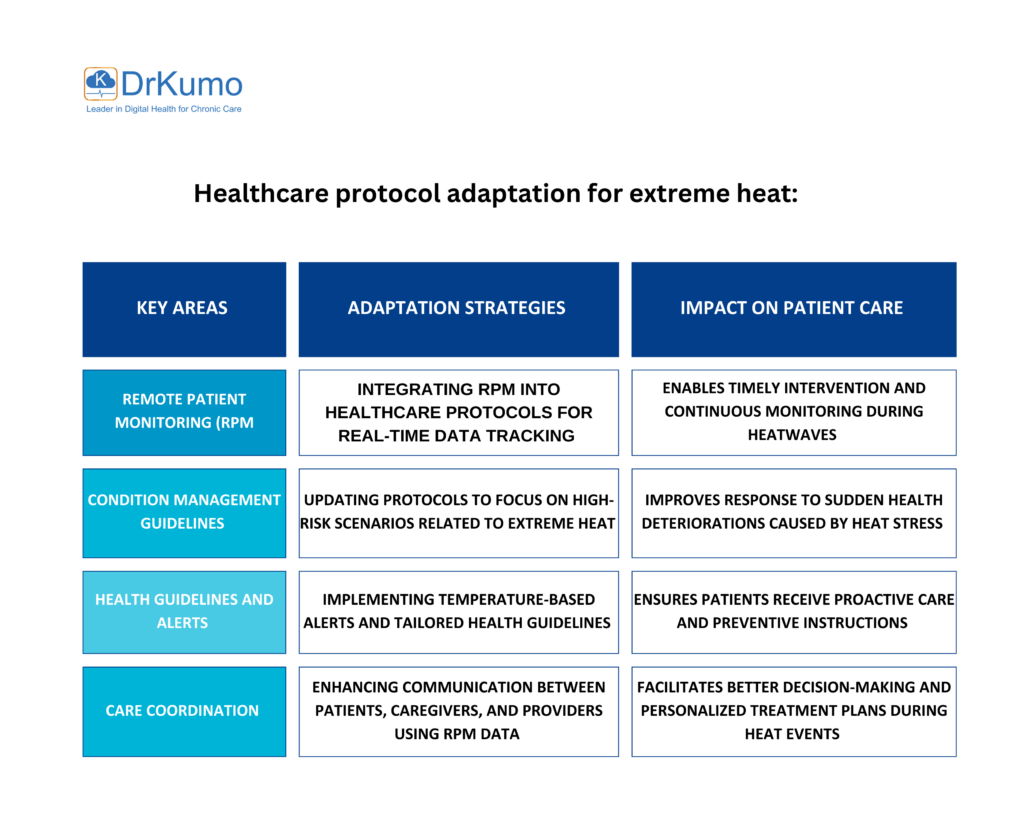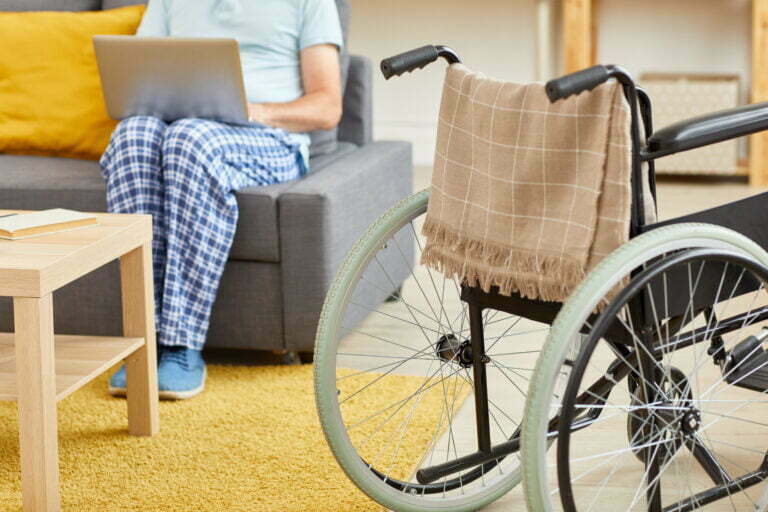According to a study published by the National Center for Biotechnology Information (NCBI), heatwaves have contributed to a significant increase in health-related risks, with over 70,000 deaths linked to extreme temperatures in the past two decades. As global temperatures rise, managing heat-related illnesses is more crucial than ever. Remote Patient Monitoring (RPM) offers a solution by providing real-time tracking of vital signs, enabling healthcare providers to respond promptly during heatwaves and manage conditions more effectively.
The Power of Remote Patient Monitoring
Remote Patient Monitoring is transforming how chronic disease care is delivered. By continuously collecting health data, such as body temperature, heart rate, and respiratory function, RPM ensures that any signs of heat-related stress are detected early. This proactive approach is crucial in-patient management and disease control, particularly for individuals with existing chronic conditions who are at higher risk during extreme heat events.
Common signs of heat-related stress
- Heavy Sweating: One of the earliest signs, often accompanied by clammy skin.
- Muscle Cramps: Especially in the legs, arms, or abdomen, signaling dehydration and electrolyte imbalance.
- Fatigue and Weakness: Persistent tiredness, lack of energy, or dizziness.
- Headache: A throbbing headache that worsens with continued heat exposure.
- Nausea or Vomiting: A feeling of sickness that can escalate into vomiting.
- Dizziness or Fainting: Light-headedness or passing out due to reduced blood flow to the brain.
- Rapid Pulse: Fast but weak heartbeat as the body struggles to cool down.
- Confusion or Irritability: Mental disorientation, confusion, or unusual behavior changes.
- Cool, Moist Skin (in mild cases): Despite the heat, the skin may feel cool due to excessive sweating.
- Red, Hot, and Dry Skin (in severe cases): Skin that is hot to the touch and lacks sweat, a sign of heatstroke.
If you or someone else shows these signs, it’s crucial to move to a cooler place, hydrate, and seek medical attention if symptoms worsen.

Innovations in Disease Management
With RPM technology integrated into healthcare protocols, chronic condition management becomes more dynamic and responsive. Health management guidelines can now be tailored based on real-time data, enabling healthcare professionals to adjust treatments promptly. This level of customization in disease management not only improves patient care but also prevents complications from escalating into emergencies.
Adapting Healthcare Protocols to Extreme Heat
Effective condition management requires a combination of modern technology and updated health guidelines. RPM provides the tools needed to monitor patient data remotely, allowing for timely interventions when high temperatures pose serious health risks. As healthcare systems adopt RPM, new protocols can be implemented that emphasize real-time response and continuous patient care.
Takeaways
As heatwaves become more frequent, remote patient monitoring will play an increasingly vital role in managing heat-related diseases. By integrating RPM into chronic condition protocols, healthcare providers can offer personalized care that adapts to fluctuating environmental conditions. This not only improves future health but also ensures that patients receive the best possible care, no matter how challenging the climate becomes.
Remote patient monitoring is revolutionizing disease management, especially for heart-related conditions. Embracing this technology empowers healthcare systems to deliver smarter, more responsive care, ensuring patients stay safe and well-equipped to face the challenges of a warming world.
Empower your healthcare strategy with RPM to revolutionize disease management and ensure patients receive the best possible care—no matter how extreme the climate. Contact us today to explore how RPM can future-proof your health system and elevate your patient care to new heights. Embrace smarter, more responsive healthcare now!








